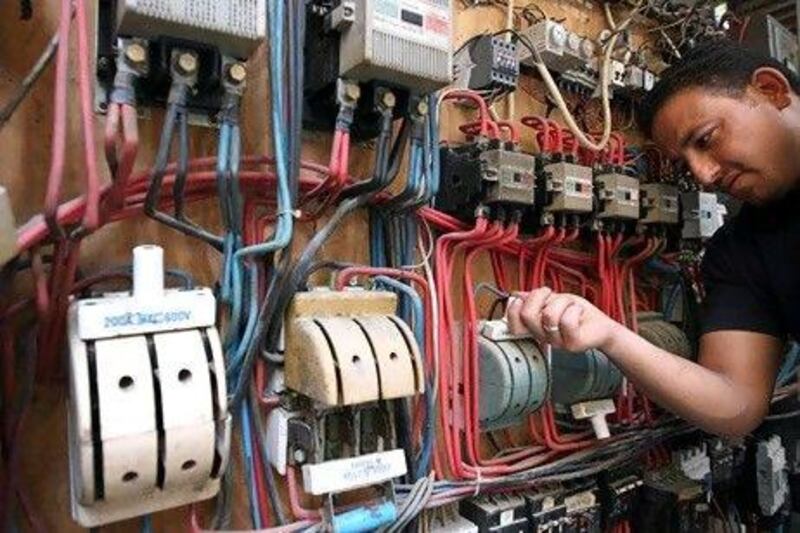In London, the phone-hacking scandal worsens by the day.
Meanwhile, in Beirut, my Lebanese wife, who is terminally bored with how I moan about corruption and how nothing works in Lebanon, developed that triumphant look in her eyes when it became clear the threads of so-called British decency were unravelling, undone by a culture of journalism that appears to have extinguished all moral scruples in pursuit of the story.
I suggested that, rather than gloat at what she clearly felt was a shining example of Western society gone rotten, she should be envious of a nation that is ready to throw rotten tomatoes at high-profile transgressors as they languish in the stocks.
Justice in its many forms has indeed been swift: A 168-year-old newspaper, a national institution no less, was gone within a matter of days; its owner's bid for BSkyB will in all likelihood fall apart as a result and many a journalist and bent copper are facing a spell in jail. So rather than lament the decline of standards, I prefer to celebrate a triumph for accountability.
Lebanon on the other hand makes Al Capone's Chicago look like Zurich.
Corruption is so endemic it is hard to see how we can reverse what has become a chronic norm.
In a country where people expect to be paid before walking over to the polling booth to cast their vote, it is easy to see why they then bridle at having to stump up for basic services, such as power and water and how this attitude, one unwittingly cultivated in the Petri dish of sleaze, has contributed to what I would contend is a failed state.
The social contract between the voters and the people they elect has been torn up. When money is the motivating factor in determining who gets what municipal job or seat in parliament, it is hardly surprising election promises count for naught, even if people can remember what they were in the first place.
Take our new government. I have been writing about Lebanese affairs for 16 years but last week was the first time I ever took the trouble to read a ministerial statement, the document of intent drafted by every incoming administration.
The latest exercise in waffle offers an interesting, not to mention depressing, insight into how the Lebanese live in a universe of denial and self-delusion.
The item that appeared to cause most agitation was clause 14, which pertains to the Special Tribunal for Lebanon and which the government has pledged its "commitment to revealing the truth regarding the assassination of the prime minister Rafik Hariri and his companions … in a manner that does not impact negatively on Lebanon's stability, unity and civil peace".
Clause 14, which will doubtless receive closer scrutiny elsewhere, did not immediately offend me, primarily because it is an extraordinary item and the wisdom of its wording is open to legitimate debate. It was the sections referring to Lebanon's economic health that beggared belief. Two in particular grabbed my attention: clauses 29 and 30, which deal with electricity and water.
The new government promised to make the reform of the electricity sector "a priority and will work to implement the 2010 reform plan in a bid to improve the sector, stabilise electricity supply, and balance the finances of Electricite Du Liban [EDL]."
All very noble, but after 20 years of similar promises, I am not holding my breath, especially when the current line up of ministers has been determined by political exigency rather than individual skill sets.
Our national grid has become a byword for how useless we are.
Most Lebanese would be happy with a steady, 24-hour supply, a system in which power was not stolen and which mismanagement has not ratcheted up US$1 billion (Dh3.67bn) in unpaid bills and an annual deficit for EDL last year of $1.5bn.
EDL's infrastructure is creaking and runs on carcinogenic diesel. One also wonders what will happen to the fortunes of those powerful businessmen who make up the state's shortfall by selling electricity churned out by privately owned generators.
In the meantime, I have two words for the new minister: solar panels. If they can work in Ireland, they can work in Lebanon. It was a similar exercise in trying to keep awake for water.
The government says it will "set and execute the national strategic plan for the water sector, based on efficient administration by the energy and water ministry, including the improvement of sanitation, water dams". Whatever.
This summer I will probably have to buy about five tonnes of water from a private supplier (even though a 1976 law deemed water a public good) to make up the shortfall.
A 2004 study, and believe me very little has changed, by the Heinrich Boll Foundation showed less than 20 per cent of the population had adequate access to water.
Countless reports tell us billions of cubic litres of water from rain and melting snow are washed away into the sea each year.
Lebanon does have sufficient water for its own needs with enough left over to sell, but rather than harness what we have, we prefer to rage against the alleged Israeli theft of water from the Litani river.
Trust me, nothing will change.
Michael Karam is a communication and publishing consultant based in Beirut





